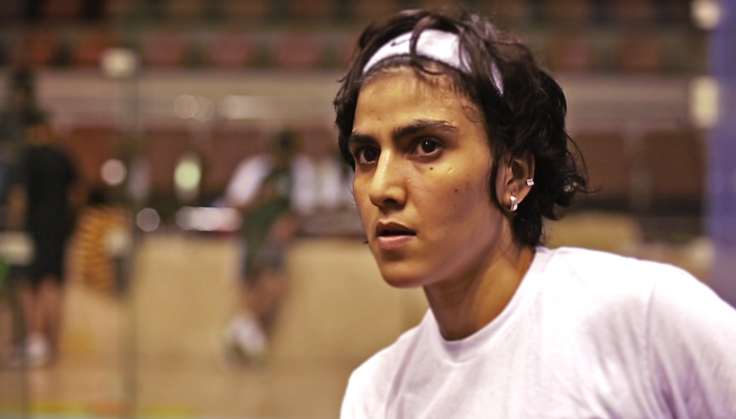Girl Unbound reveals how a champion female squash player dressed as a boy to compete
The documentary was made in tribal areas of Pakistan, ruled by warlords and the Taliban.

In Waziristan, "one of the most dangerous places on Earth" Maria Toorpakai Wazir receives death threats from the Taliban. Her crime is wanting to play squash, and nothing will stop her dream of becoming the number one player in the world.
In Pakistan, women are prevented from playing sports, and as Toorpakai said at Human Rights Watch Film Festival's London screening of Girl Unbound: The War To Be Her, on 15 March, "playing sports is a radical act" in her home country.
Toorpakai stopped playing squash, because of the Taliban's death threats, and hides in her room. But frustrated at her lack of progress, she decides to dress as a boy in order to continue in her dream of being the best squash player in the country.
With the help of her father, Toorpakai enters squash tournaments under the testosterone-fuelled name Genghis Khan. But when she enters puberty, the boys notice her difference and the threats begin.
Director Erin Heidenreich's revealing documentary follows Toorpakai and her family as they flee from place to place, never staying in the same location long, for fear of attack.
In one chilling episode, we hear the phone call made to the squash player's father from a member of the Taliban. Demands are made for money or the family are warned about reprisals.
But Toorpakai's father, with great courage, refuses to give in to their threats. But this means a life constantly on the move and staying in safe houses.
The film sensitively touches on identity and gender. Early in her life, Toorpakai says that she identified as male and burned all her girl's clothes. But later on, she feels neither exclusively male nor female, and talks this over with her sister Ayesha, who wisely advises her to wait and see what happens as she gains more life experience.
The documentary challenges the notion of women's place in society, particularly in the tribal areas of Pakistan which are ruled by warlords and the Taliban. What comes across most strongly is the family's strength in the face of adversity and the refusal to back down.
"This bravery from Maria is what I channelled when I made the decision to go into the Tribal Areas [of Pakistan]. I put myself in harm's way by being a woman, an American, and carrying a camera without security or permission," Heidenreich said.
"But if Maria can live most of her life under threat of being killed for who she is, then I can certainly do it as a filmmaker, and be who I am."
© Copyright IBTimes 2025. All rights reserved.





















